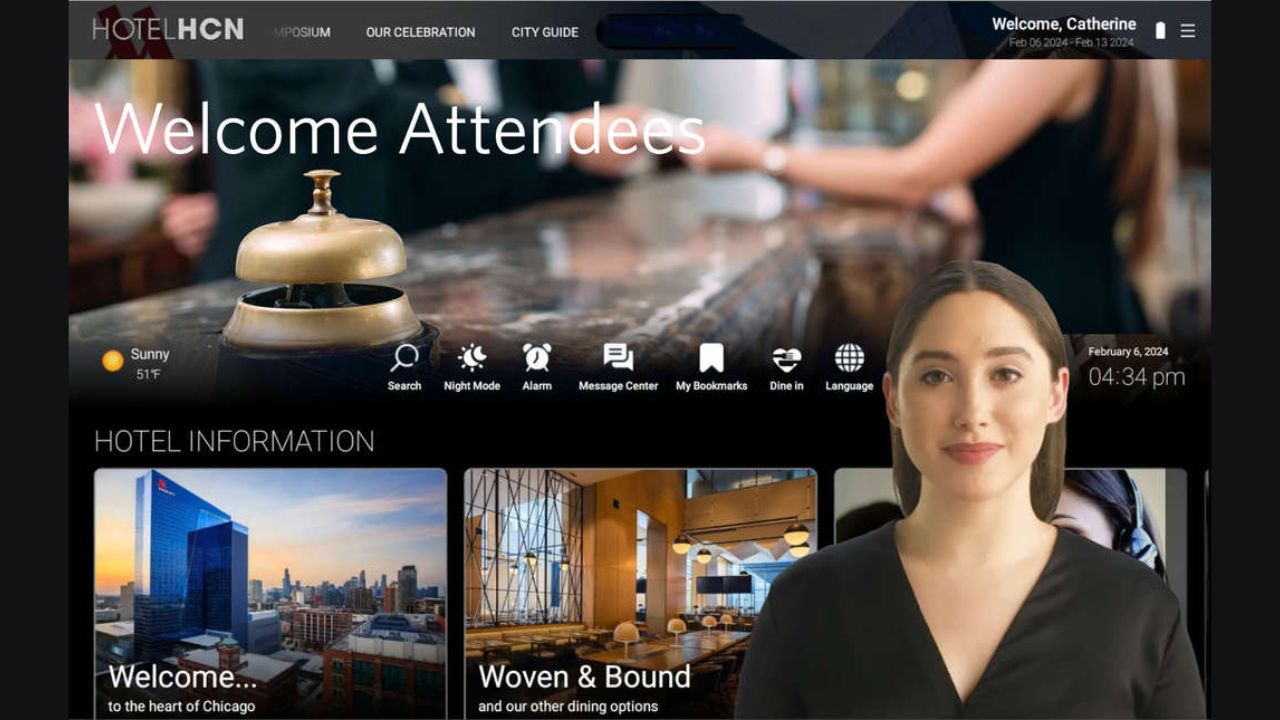The New Frontier of In-Room Tablets + AI: Impacting Hotel Operations, Beginning with Housekeeping
In order to streamline two-way guest communications, hoteliers have been partnering with suppliers for decades to use technology to order room service and fulfill service requests.

The New Frontier of In-Room Tablets + AI: Before checking out, a businessman from Italy is greeted by name by a concierge who speaks fluent Italian, but with a slight accent.
This is absolutely a reality of what will come soon, despite the fact that real-time natural language processing and translation are still in their infancy.
In order to streamline two-way guest communications, hoteliers have been partnering with suppliers for decades to use technology to order room service and fulfill service requests. There are, however, some shortcomings to most existing communication solutions on the market.
The New Frontier of In-Room Tablets + AI: Impacting Hotel Operations, Beginning with Housekeeping
A hotel guest can send a request from their mobile device to a designated staff member or department (often the hotel operator) using text-messaging platforms today. Because the messages are unstructured, guests may request the same service or item in dozens of different ways. The hotel operator or whoever manages the tasks has to interpret the request and then manually enter it into the hotel’s service system. This is the “swivel chair interface.”
Using a swivel chair, a human interprets data from one system and then turns his or her chair to enter the same data into another system again. In hotels that still have a labor shortage, this redundancy needs to be eliminated because it is time-consuming. In order to stop this madness and enhance both guest and employee experiences, operators will soon be able to add artificial intelligence-enabled in-room tablets.
The use of artificial intelligence is having a significant impact on housekeeping operations in terms of how requests are placed, fulfilled and managed.
Also Read: Shiba Inu Forecast: ChatGPT Predicts Timing for SHIB to Reach 10 Cents
Instead of blindly texting the hotel app, guests can use the in-room tablet to request clean washcloths, which are then sent to the housekeeper.
Apart from filling out service requests, AI-powered in-room tablets can do these things:
- A hotel guest’s frustration can be escalated to a hotel manager based on their tone and words.
- Integrate panic buttons with granular information to pinpoint the exact location of a housekeeper in distress.
- Housekeepers or room supervisors can update room status and close work orders using a tablet’s back-office mode (integrated with the hotel’s PMS).
- In-room electronics, such as inconvenient TV applications, expensive voice solutions, and obsolete alarm clocks, should be replaced.
- With AI Concierge, guests can control room temperature, lights, do not disturb, make up room, etc., by speaking commands to the AI Concierge or touching icons on the tablet.
- Even if only 20% of guests use the brand app, operators can replace loss-leaders like room service with a digital ordering platform that brings food and drinks from local restaurants to guests.
- Remove printed compendiums, QR code table tents, and mirror stickers promoting marketing messages.
Select hotels will debut AI in Q1 2024.
Also Read: New Lloyd Report: GenAI Impact On The Cyber Threat Landscape
